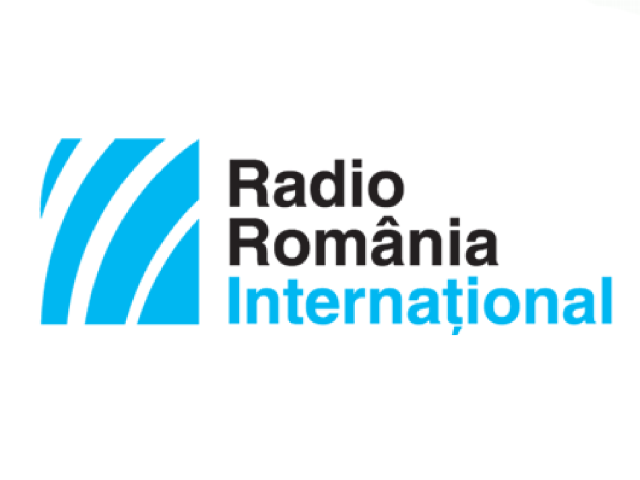Romania on the international stage in the 1960s
In the 1960s, Romania was looking for its own voice on the international political arena.

Steliu Lambru, 03.05.2021, 14:00
In the 1960s, Romania was looking for its own voice on the international
political arena. Having moved, after 1945, under the sphere of influence of the
Soviet Union together with the whole of Eastern Europe, it was forced to change
its political and social-development model. Its foreign policy was also affected,
the break-up of ties with the western world being the first directive issued from
Moscow. From 1948, when the communist regime fully came to power, until the beginning of the 1960s,
isolationism and hostility towards the West and the capitalist world dominated Romania’s
foreign policy.
Stalin’s death in 1963, Khrushchev’s condemnation
of Stalin and the USSR’s intervention against the Hungarian revolution of 1956 were
some of the most important events leading up to a change in the international
relations of the former socialist bloc. The Soviet Union began to diminish its
control over the states it had occupied after 1945, while these countries’
communist leaders were trying to rebuild the ties affected after the war. Romania
was itself trying to rebuild its international identity. Its foreign ministry
was in need of a reformist leader, and Corneliu Mănescu,
Romania’s ambassador to Hungary, was believed to be fit for the job. In 1961,
he was summoned in Bucharest and told he would take over as Romania’s foreign
minister by the head of state himself, Gheorghe Gheorghiu-Dej.
At that time, Romania had diplomatic ties with around 30 states. Mănescu
believed this was risible and the first thing he did was opening an avenue of communication
with the United Nations, where Romania did find friends. One such friend was the
Burmese diplomat U Thant, the organisation’s third secretary general. Romania was
thus accepted as a United Nations member in 1955. In 1994, Radio Romania’s Oral
History Centre recorded an interview with Corneliu Mănescu, who was 78 at the
time:
U Thant was a great friend of Romania. He helped us become an
honourable member of the United Nations Organisation and establish the UN
centre in Bucharest, as well as with many other things. He did everything he
could to help us. In 1968, when Romania was at threat from [Russian] invasion, he
was the first person I got in touch with in New York and he promised to hold an
extraordinary international meeting of the United Nations to support us. So, we
owe him our respect and gratitude.
Corneliu Mănescu also sought to restore Romania’s ties with the West,
beginning with France:
In 1961, when I took over the foreign ministry, Romania almost only had
ties with the states in the Warsaw Pact. With the western states, alongside
which we fought against Hitler’s armies, we had been in a state of near war since
1945. Relations had been almost frozen. From 1961, we systematically began to
expand our ties. First of all, we restored relations with countries like
France. In 1961, our relations with France were almost non-existent. I met the
then French foreign minister Couve de Murville in 1961 in the first year of my
tenure and he invited me to France. I immediately said yes, which wasn’t regular
practice. It wasn’t customary for someone to make such a decision on their own.
Of course, I later also received the approval from back home.
Another western country Romania set its sights on was Italy:
Romania was having an unforgivable attitude towards international
organisations, it was rejecting them, rejecting assistance. I will never forget
a discussion I had with the Italian prime minister Amintore Fanfani in
Bucharest when I told him Romania needed the help of industrial countries, such
as Italy. And he said ‘What took you so long? We waited for you to ask for our
help but you never asked. So, we gave our help to the countries who asked,
especially Yugoslavia’. These were Fanfani’s words.
Romania would make the big step in 1967, namely restoring ties with West
Germany. Romanian communist-era foreign minister Corneliu Mănescu recalls:
At around that time I gave an interview to a reporter from The Christian Science Monitor, his name was Rossi and was working in New York.
He asked me about our attitude towards West Germany, whether we wanted ties
with them, whether we believe we should have a formalised, stable relationship.
And he also asked if I thought Germany was fascist, to which I categorically replied:
‘No!’ This interview sparked a lot of discontent among the other Warsaw Pact
countries, especially East Germany, who protested vehemently. They asked me
what right did I have to express such a position. But this didn’t change anything,
things had been clarified, it was something that needed to be done.
Corneliu Mănescu was a successful foreign minister and enjoyed support
from the highest level. On 19th September 1967, he was elected
president of the 22nd session of the UN General Assembly, being the
first representative of a socialist country to occupy this position. At this
time, Romania’s image abroad was excellent, something it would go on to take
advantage of throughout the 1980s. (CM)






























